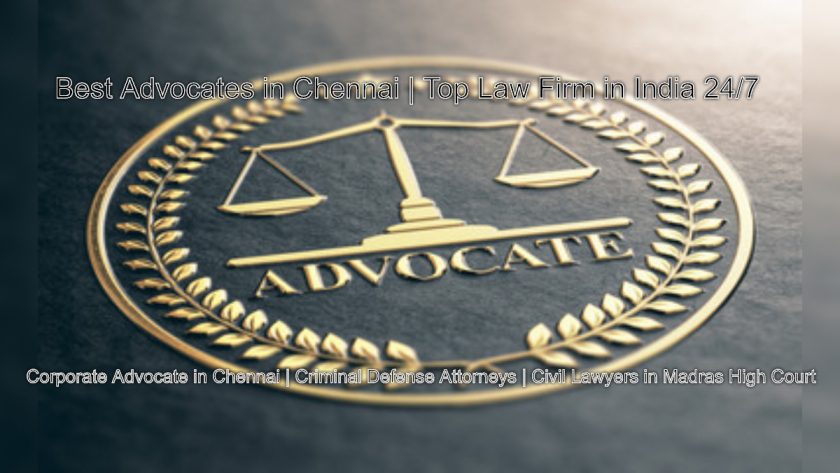ADVOCATES FOR THE INSOLVENCY AND BANKRUPTCY CODE, 2016
The Insolvency and Bankruptcy Code(IBC) indeed aims to resolve insolvent and bankrupt disputes of individuals & organizations.
The keywords of the code are ‘Insolvency’ and ‘Bankruptcy’ to clarify. These two words are transposable in common language in the first place. But there is a hairline difference between them in like manner. Insolvency is a state where an individual or organization is unable to repay debts owed by the same token. But Bankruptcy is a legal status forced by courts. It highlights ones obligation towards creditors and their inability of repayment at the same time.

The Insolvency and Bankruptcy code assures confidence in recovery, rise above loopholes and speedy dispute resolution in the final analysis.
A Brief Overview Of The Insolvency And Bankruptcy Code (IBC)
Applicability of IBC:
- Companies
- LLP
- Partnership firms
- Individuals
- Other corporate & bodies specified by the Government
Authorities that comes under IBC:
Insolvency Board :
Registers & regulates insolvency professionals/professional agencies/information utilities.
Insolvency professional :
He is the authorized person who conducts insolvency resolution process.
Insolvency professional agencies
The board creates insolvency professional agencies . The board further appoints the Corporate attorney for resolution.
Information Utilities
It is for creation & storage of financial information.
NCLT
It is the adjudicating authority for insolvency issues for company & LLP.
NCLAT
It is the appellant authority where you can appeal against an NCLT order.
DRT
It is the authority that adjudicates insolvency issues of partnership firms and individuals.
DRAT
It handles appeals against the DRT order by all means.
Procedure of Insolvency Resolution for Company & LLP
Insolvency resolution process gets completed within 180 days from the date of application. When 75% of creditors agree for extension, you can extend the same further by 90 more days. Small companies can have fast track resolution process which gets completed within total 90 days.
- A Corporate debtor or financial creditor or operation creditor can file an application with NCLT for insolvency resolution in case of debt default.
- NCLT may either approve or reject such application.
- When approved NCLT appoints interim Corporate advocate. This appointment gets further confirmed by committee of creditors.
- The process of insolvency resolution begins with public announcement
- The debtor (Company or LLP) has to give a detailed resolution plan to Corporate lawyers in Chennai. The resolution plan explains about the repayment of creditors.
- NCLT can either accept or reject the resolution plan.
- NCLT can declare a moratorium period barring certain actions of debtor as a matter of fact. It can be filing suits or continuing pending suits and so on.
Liquidation Process of Company & LLP:
The liquidation process begins under the following situations:
- NCLT does not receive a resolution plan within due date or if submitted gets rejected.
- 75% of creditors decide to liquidate the debtor (company or LLP)
- Violation of approved resolution plan
After getting liquidation order, without NCLT permission no legal or non-legal proceedings can happen with the organization. Liquidator holds the entire power to the company. Board of directors and managerial persons cannot interfere at this instant.
The liquidator verifies all claims, takes custody of assets and evaluates them for the most part. He invites claims from creditors and carries other functions in this case. He assesses the creditor claims and determines their claim value in other words.
The sale proceeds of debtor’s assets gets disbursed in the following order
1) Corporate Lawyers professional fees
2) Workmen wages
3) Secured creditors
4) Employees wages
5) Unsecured creditors
6) Government dues
7) Other debts
8) And finally the Shareholders
Insolvency and resolution process for Partnership firm and individual:
- The debtor or creditor of an individual/partnership firm can apply for insolvency resolution process with Debt Recovery Tribunals(DRT)
- DRT may approve or reject the application.
- When insolvency resolution application gets approved, DRT appoints insolvency resolution process professional.
- Debtor (Individual or partnership firm) has to prepare resolution plan and submit it to DRT.
- DRT may accept or reject resolution plan
- DRT has power to declare a moratorium period barring certain actions of debtor. It can be filing suits or continuing pending suits and so on.
- Corporate advocate calls out a meeting with creditors in the same fashion. He works out repayment plan with debtor and discusses the same at the meeting. The repayment plan can get approved by creditors. The Corporate lawyer submits the same to DRT for its approval.
Fresh start option:
An individual make an application to DRT requesting him to discharge from debt liability if his total income does not exceed INR 65000 and his qualifying debts does not exceed INR 35000.
When the application gets approved, DRT appoints Resolution Professional. This professional recommends fresh start option with this in mind.
Based on the Resolution Professional report to clarify, , DRT passes an order discharging the debtor from all debt liability.
Bankruptcy:
- When debtor or creditor or adjudicating authority does not approve resolution process or fresh start plan, adjudicating authority appoints bankruptcy nominee. Bankruptcy nominee can also be Corporate Lawyers
- Public announcement gets published inviting creditors’ claims.
- Bankruptcy nominee prepares a list of debtor’s assets
- Adjudicating authority passes the bankruptcy order
- Bankruptcy trustee takes custody of all assets of debtor or bankrupt. Bankruptcy trustee disposes off to settle creditors’ debts.
- Adjudicating authority passes discharge order.
A Bankrupt cannot be
- Trustee or representative in any trust/settlement.
- No public servant allowed
- Cannot get elected to public office.
- Must not be a director of any company
Find the best Corporate Lawyers for Insolvency and Bankruptcy in Chennai
We are the best advocates for IBC code in reality. In fact, We will support you in times of your great need through valued legal advice and representations. Above all, Contact Our Senior counsels today.



